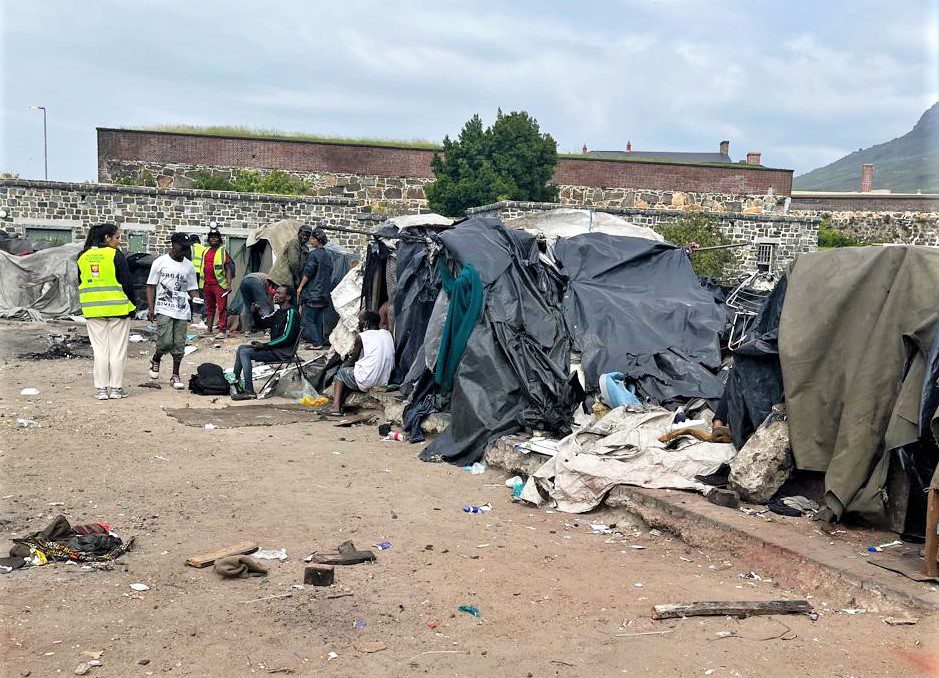An eviction order issued by the Cape Town High Court directed the unlawful occupants living outside the Castle of Good Hope to vacate the premises by October 17, 2024. Despite this legal mandate, the occupants remain on the site, with no visible signs of preparations to leave the area or dismantle their illegal squatting.
Concerns are growing around the continued presence of these individuals, as it appears that the court’s directive has not been adhered to. The delay raises questions regarding the willingness of the occupants to comply with the eviction notice, as well as the potential consequences of their continued occupation.
Castle Control Board CEO, Mr. Calvyn Gilfellan, provided insight into the situation, expressing concerns over the possibility of resistance from the remaining occupants. His remarks suggest an understanding of the complexities involved in such an eviction process. Mr. Gilfellan shared that, despite the court’s order, none of the individuals had vacated the premises voluntarily by the stipulated deadline.
“We urge all involved in the now imminent eviction to do so with the utmost dignity and restraint. That goes for both unhoused community members and the Sheriff of the Court,”
Gilfellan’s statement highlights the delicate nature of the eviction process, emphasizing the need for respect and restraint from all parties involved. The challenge now lies in how the eviction will be carried out without escalating tensions between the occupants and law enforcement officials.
The Castle Control Board has been actively coordinating with the City of Cape Town and the Department of Public Works to address what happens once the eviction is completed. These discussions have focused on the post-relocation phase, addressing concerns such as the rehabilitation of the area, the enhancement of security measures, and planning for the site’s future use. This suggests that there is a broader strategy at play, with efforts being made to ensure that the space can be effectively managed after the eviction.

















